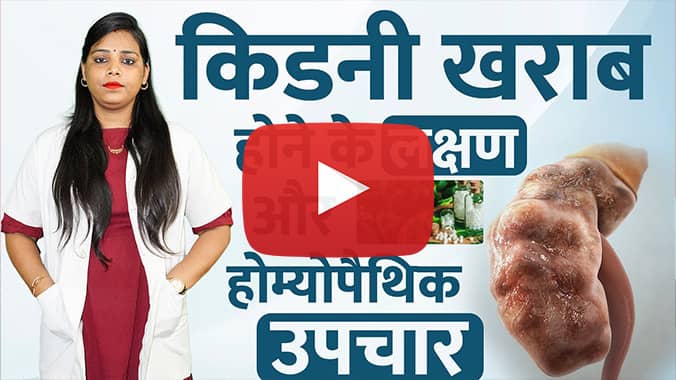What is Chronic Kidney Disease CKD?
The Human kidneys filter wastes and excess fluids from human blood that are ultimately excreted in the urine. The typical human Kidney has approximately 1 million functional units engaged in the mechanism of filtration of impure blood. These units are known as nephrons. The disorder in the nephrons is known as renal disorder, renal dysfunction, or "Kidney Disorder" in layman's language. When the kidney disease acquires a severe and challenging treatment, it is known as "Chronic Kidney Disease."
The disorders related to the Kidney are a potent cause of concern. Gone are the days when CKD was confined to geriatric (older Age) patients. Nowadays, almost every age group has been reporting incidents of acute to chronic level of kidney disease. Chronic Kidney disease, sometimes also known as chronic kidney failure, involves a loss of kidney function at a gradual pace. Chronic kidney disease is reported to cause dangerous levels of fluid, electrolytes, and waste accumulation to build up in the human body.
Call Now - +91 9958318261 Avail Free Consultation
India reportedly detects almost 10 lakh cases of patients suffering from Chronic Kidney Disease. Amongst all the age groups showing the CKD incidents, the most vulnerable one is 40 years to 60 years.
Owing to Malnutrition, newly born infants (0 to 6 months of Age) are reported to show incidents of CKD.

Causes of Chronic Kidney Disease
Malnourishment of lactating mothers
The deficiency of essential nutrients in the meals of lactating mothers causes kidney function impairment in the developing baby.
Smoking
The blood pressure is increased by excessive smoking. The increased blood pressure led to the increased duty on nephrons. This tremendous pressure on the Kidney might ultimately lead to Chronic Kidney Disease.
Improper Diet
An imbalanced diet may cause disorders in the function of the Kidney.
Bad lifestyle
Lack of physical exercise and a sedentary lifestyle may also compromise kidney function.
Pre-existing underlying Renal/Kidney diseases
The presence of other underlying renal kidneys such as Glomerulonephritis and cancer of the Kidney.
Inadequacy/deficiency of nutrients in women in their pre-delivery phase
when the young mothers of the lower class of society did not receive adequate nutrition. Then, they might deliver babies with improper kidney function.
Genetic defects in Offspring born out of consanguine wedlock
The newly born infants born out of the wedlock of two closely related parents such as the daughter or son of a maternal uncle, paternal Aunt, and closely related cousin.
Early signs and symptoms of chronic kidney disease (CKD):
- Edema: Swelling of feet and ankles due to the excessive fluid accumulation in the tissues of the patient's body. Edema can occur in any part of the body of the patient.
- Vomiting: The act of regurgitation finally leads to the expulsion of the partially digested ingested food contents directly from the Stomach.
- Nausea: is a feeling of reversal of partially digested food particles in the Stomach. And a feeling of spasm of Food pipe.
- Increased blood pressure (hypertension): It is one of the common symptoms of Chronic Kidney Disease in which the blood pressure is exerted by the blood on the walls of the arteries and veins.
- Loss of appetite: Due to the less secretion of Acid in the Stomach and an imbalanced system of digestive enzymes.
- Decreased mental sharpness: The intellectual impairment of the patient suffering from CKD is prevalent. This is because of the penetration of urea-enriched blood across the Blood-Brain Barrier.
- Dry, itchy skin: due to the abnormally exaggerated Immune system as a response to circulating urea and other impurities in the blood. Autacoids such as Histamine and serotonin are released at the skin and cause skin inflammation manifested by itching, dry lesions on the skin, and red patches on the skin.
- Fatigue and weakness: The manifestation of chronic kidney disease. The rate of breathing becomes increases.
- Sleep problems: The sleep pattern becomes disturbed. The quality and Quantity of sleep get disturbed. The no. of sleeping hours has become drastically reduced.
- Urinating more or less: The Imbalance of Sodium and Potassium ion import and export causes the increased or decreased urine flow rate.
- Shortness of breath: If the fluid accumulates in the lungs, it may cause shortness of breath.
- Muscle cramp: In the patients with CKD. The Quantity of blood reaching the muscles becomes decreased. As a result, the amount of oxygen reaching the muscular system decreases, too.
Tests recommended for patients suffering from CKD
It detects the abnormal traces of protein and blood in the urine. There are several different probable reasons for protein being released in the urine. Not all of those reasons are directly or indirectly related to CKD disease. Other bacterial or viral Infections might also increase the protein concentration in the urine. This condition is known as Proteinuria. Proteinemia might also occur as a consequence of heavyweight training and physical workout. The physician might also ask the patient to repeat this test after a few weeks to observe if the results are similar.
Blood pressure significantly increases in patients suffering from CKD. This test is done to check whether the blood pressure is within normal range or it is increased. Increased blood pressure is not always indicative of CKD.
Is the Estimated Glomerular Filtration Rate (EGFR) test. It measures the volume of blood the nephrons clean every minute based on the patient's body size.
Allopathy v/s Homeopathy
As far as the Healing process in the allopathic system of medicine is concerned, these drugs are involved in the temporary reduction of the symptoms of CKD. On the other hand, The Homeopathic system of medicine relies on a precisely personalized herbal medication regime.
The prolonged use of thiazide diuretics can cause different side effects such as agitation, dizziness, the sensation of spinning, a feeling of numbness or tingling in the muscles of limbs, water loss that might lead to diarrhea, cramps in the Stomach, blurred vision; spasm of skeletal muscles; or impotence in males, and problems related to Reproductive system. Spironolactone is a medicine that causes hypokalemia in which the concentration of the Calcium ion in the body fluids reduces.
How is Bharat Homeopathy a hope for patients with CKD?
- Bharat Homeopathy is one of the leading homeopathic organizations available in the healthcare sector for its specialization in treating all types of Kidney disorders. Bharat Homeopathy's treatment of the Kidney has shown remarkable achievements and results in our patients who consulted us over a few years.
- Bharat Homeopathy does not believe in consuming toxicity-causing allopathic medicines that also take a toll on patients' pockets. Bharat Homeopathy has a vision that most kidney disorders can be treated with the help of Homeopathy.
- Bharat Homeopathy is highly attentive to preparing the homeopathic doses of the patients with their respective disorders. Bharat Homeopathy has continuously engaged itself in making the homeopathic mode of medication highly acceptable and reasonable.
- Bharat homeopathy ensures care and affection-based treatment in terms of medication prescription and the proper observation and follow-up of the patients.
- "Bharat Homeopathy believes in a dimension where everyone is devoid of anxiety, worry, and pain associated with health complications."
Bharat Homeopathy
Consultation Advantages
Each day, over 200 patients engage in conversations with a Bharat Homeopathy doctor to uncover the underlying causes of their health concerns and receive tailored treatment right at their doorstep. Here are the factors contributing to the trust of millions worldwide.

Happy Patients

Doctors

Safe & Natural

Side Effects
